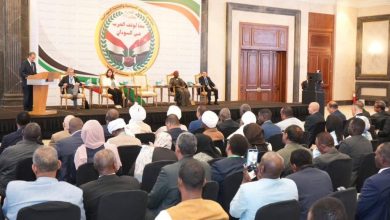Wages in Sudan: Another War Against Workforce

Port Sudan: Nazik Shamam
The Ministry of Finance and Economic Planning in Sudan is trying to pay the salaries of the State employees who are facing a fierce battle with living conditions and skyrocketing inflation amidst the ongoing war and conflict in Sudan, covering around 60% of the salaries. The Ministry is attempting to cover the salaries amid a significant revenue deficit and an almost complete halt in production activity.
There are complaints and dissatisfaction among employees due to the varying commitment to wages by the Ministry of Finance. Some government units receive their salaries monthly, while others have only recently received their June salaries.
Reliable sources have revealed that sovereign ministries and federal government units have received their salaries up to last January. There are segments of civil service employees with more than five months of arrears, with the latest salary received being for June last year.
Samia Ali, a secondary school teacher, emphasized that teachers are the first group whose salaries have not been fulfilled, noting that there are five months of outstanding salaries for government employees. She pointed out that teachers’ salaries have now become just the basic salary, with allowances that used to supplement the salary to cope with living conditions being withdrawn.
She expressed astonishment at the disparity and discrimination practised by the state, represented in the Ministry of Finance, towards civil servants, as some units receive their salaries while others are delayed.
In October last year, Sudan’s Minister of Finance, Dr Jibril Ibrahim, stated that it is unlikely that the salaries of employees will be increased at the current time, as the state is unable to pay these salaries in full due to the war between the army and the Rapid Support Forces militia since mid-April.
The economist Dr Mohamed El Nayer confirmed that the state has not been able to fulfil the wages and salaries of state employees regularly. He explained that the state has started paying federal units and tried to regularise central units, consisting of ministries, institutions, and federal bodies only, which amount to two hundred units.
Dr El Nayer pointed out that the delay in fulfilling the commitments to the state has affected education and health, reflecting negatively on service delivery even in safe and stable states. He stressed that most employees are suffering from dire conditions in light of the rampant high cost of living nationwide due to the current situation.
He emphasised that the entire economic process will not stabilise without political stability. Dr El Nayer also stressed the need for state institutions to propose economical solutions, adding that these institutions are currently deficient.





